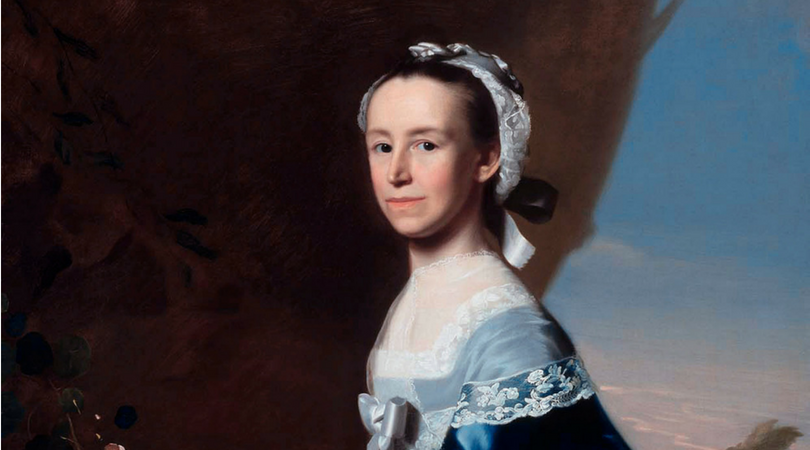About Publications Library Archives
cthl.org

Preserving American Heritage & History

Preserving American Heritage & History


Author: Mercy Otis Warren
Date:1775
Annotation:
In May 1775, shortly after the battles at Lexington and Concord, the Second Continental Congress met in Philadelphia. In mid-June, Congress established the Continental Army and named George Washington (1732-1799) commander-in-chief.
The colonists needed artillery and in May patriots captured Fort Ticonderoga, a British post in New York, seizing more than a hundred artillery pieces. Meanwhile, back in Boston, the British and the patriots began to occupy hills overlooking the city. On June 17, British forces attacked American positions on Breed’s Hill. To save ammunition, the patriots were ordered: “Don’t fire until you see the whites of their eyes.” After three advances, the British finally dislodged the colonists. The misnamed Battle of Bunker Hill was the bloodiest engagement of the entire war. The British suffered over a thousand causalities, 40 percent of the troops involved in the battle. American losses amounted to 411, 30 percent.
The artillery from Fort Ticonderoga reached the Boston area in late January 1776, enabling patriots to fortify the high ground south of the city. Realizing that British troops could no longer hold the city, British troops evacuated Boston and sailed to Canada.
In an effort to lure Canada into the rebellion, two American expeditions invaded Canada in the fall of 1775. Both efforts ended in failure and the Americans retreated to New York.
Mercy Otis Warren (1728-1814) of Plymouth, Massachusetts, was among the most effective advocates of the American cause. She wrote and published many political satires and plays, all published anonymously. After American independence was won, she wrote a three-volume history of the American Revolution which remains a valuable source of information today.
Document:
At a time when all Europe is interested in the fate of America you will forgive me my Dear Madam if I lay aside the ceremony usually observed…& again call of your Attention…to my Last [letter] in which I hinted that the sword was half drawn from the scabbard. Soon after which this people were obliged to unsheathe it to repel the violence offered to individuals & the impotence of an attempt to seize the private property of the subjects of the king of England. And thereby put it out of their power to defend themselves against the Corrupt Ministry of this Court.
You have undoubtedly, Madam, been Apprized of the Consequences of this hostile movement which compelled the Americans to fly to arms in Defense of all that is held dear & sacred among Mankind. And the public papers as well as private accounts have witnessed to the Bravery of the peasants of Lexington & the spirit of freedom Breathed from the Inhabitants of the surrounding Villages. You have been told of the distresses of the people of Boston…. Famine & pestilence began to rage in the City [forcing]…most of them to Depart leaving their Effects behind & to quit this Elegant and Convenient Habitation in the Capital & fly back into the Hospitable army of their Brethren in the Country. And the Conflagration of Charlestown [the Battle of Bunker Hill] will undoubtedly Reach each British Ear before this came to your hand. Such instances of wanton Barbarity have been seldom practiced even among the most Rude & uncivilized Nations. The ties of Gratitude which now broken through by the king, troops, in this base tradition greatly enhance their guilt. It was the Inhabitants of that town who prompted by humanity generously opened the door to the routed Gage on the Nineteenth of April and poured Balm into the Wound, of the Exhausted & dying soldiers after their precipitant retreat. Had they observed a different conduct on that Memorable day. Had they assisted in cutting off s[ai]d…retreat it might not have been in the power of General Gage to have wrapped that town in flames & driven out the miserable inhabitants the prey of poverty & despair…. I shall…only give a short account of the present situation of American affairs in the Environs of Boston. We have a well appointed brave and high spirited continental army. Consisting of about twenty-two thousand Men commanded by the accomplished George Washington…of one of the first fortunes in America. A man whose military abilities & public & private virtue, place him in the first class of the Good & Brave & one really of so high a Stamp as to do Honor to Human Nature. This army as it be originally recruited & to be supported & paid at the expense of the United colonies of America. And were Britain powerful & infatuated enough to find out a force sufficient to cut of[f] this little Resolute army…it would exhibit in the field thrice their Number. Ready to avenge the stroke & cut down the justice of Heaven on the Destroyer of the peace, liberty, & happiness of Mankind….
The great Council of America have once more petitioned His Majesty to devise some…Reconciliation. This is a final proof with what Reluctance the progeny of Britain draw forth the sword against their unnatural parent. Both the Ministerial & the American army seem at present to be rather on the defensive as if each were wishing for some Benign Hand to interpage and heal the dreadful contest without letting out the blood from the bosom of their Brethren.
Source: Gilder Lehrman Institute